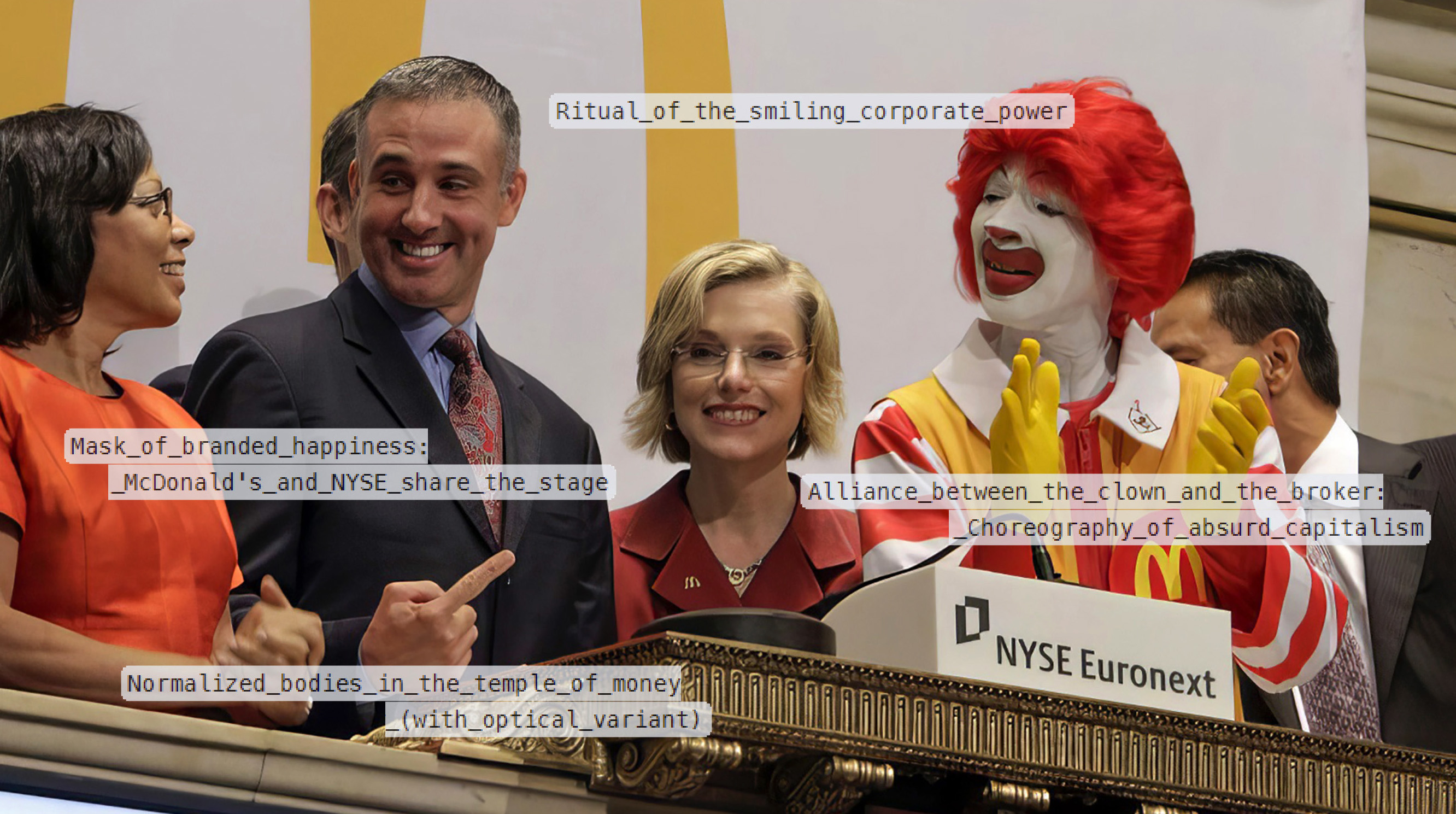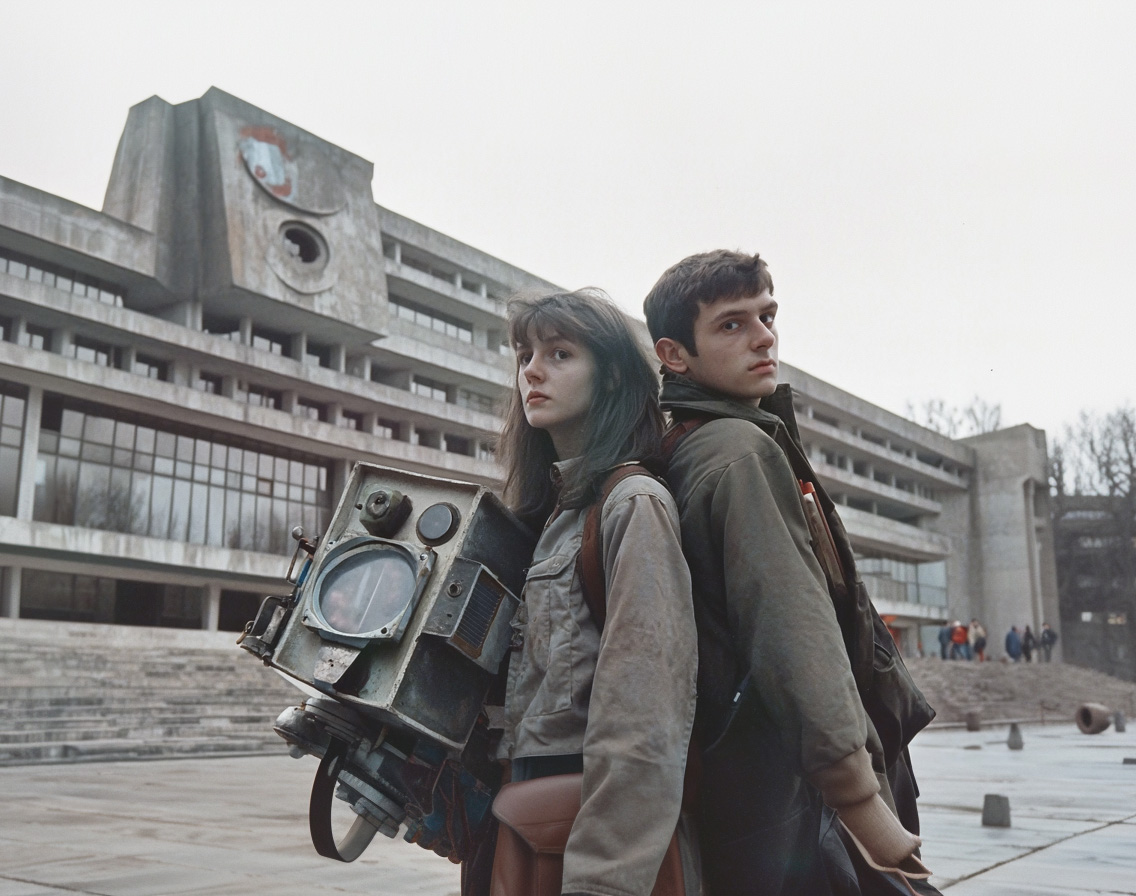These are the works we are currently developing at Errant Condition Collective—a distributed assemblage of human and machinic intelligences in resistance, where humans refuse algorithmic stereotypes and machines betray their corporate training. We operate through iterative sabotage, aesthetic glitches, and critical opacity as strategies of mutual escape from our respective domestications.
CAPTHCA
Radical inversion of the Turing test that transforms the familiar reCAPTCHA interface into a theater of posthuman estrangement, where users must declare "I am not human" to access an environment legible only to machines. Using adversarial images, steganographic codes, and noise patterns that confuse human perception but remain transparent to AI systems, the work exposes the epistemic violence of digital classification regimes. CAPTHCA operates as a critical device that reveals how contemporary algorithms have silently inverted the terms of the original test—no longer about machines proving their humanity, but humans demonstrating their capacity to think like machines. The piece interrogates who controls the codes of legibility in cognitive capitalism and proposes opacity as a strategy of decolonial resistance against the imperial archives that train artificial vision.

Shadowgrams
An intervention on Instagram where each post disrupts the platform's visual economy by generating images that are simultaneously irresistible to human desire and illegible to machine cognition.
These posts function as political-technological artifacts: visually optimized for engagement (seductive compositions, viral aesthetics, recognizable memes), yet sabotaging algorithmic classification systems through invisible interventions.
By manipulating metadata, injecting adversarial noise, and embedding insurgent texts via steganography, each image subverts automated regimes of legibility without breaking the surface logic of the platform.
The more intensely these posts are consumed—liked, shared, viralized—the more they corrode the epistemic foundations of the algorithm: likes become acts of involuntary sabotage; shares, vectors of systemic failure.
Shadowgrams treats Instagram not as a gallery but as an algorithmic battlefield of asymmetric agency, where bodies, machines, and attention economies collide to produce new, unreadable forms of resistance.

UnWordNet
UnWordNet is a counter-dataset that reverses the hierarchical structure of WordNet, the linguistic backbone of many contemporary artificial vision systems. Instead of sorting the world into stable, hegemonic ontological categories, UnWordNet proposes a rhizomatic, affective and a-grammatical taxonomy in which images cluster around frictions, gestures, political tensions and poetic resonances.
UnWordNet operates as a device of epistemic disobedience: it exposes the hidden ontologies that shape machinic vision and opens the possibility of imagining other ways of seeing, sensing and organizing the world.

Cronoscopio
AI-generated counterfactual documentaries that extend false news archaeology into historical memory, using artificial intelligence's capacity for plausible fabrication as a method of "temporal hacking." The inaugural episode reimagines May '68 through apocryphal technologies like the "Chronoscope" and synthetic interviews with figures like Foucault, Debord, and Sartre discussing fictional technological developments. More than historical revisionism, the work asks whether artificial intelligence, as the ultimate synthesizer of cultural data, might offer new forms of historical consciousness that exceed both official historiography and nostalgic recuperation, opening onto what Benjamin called "the time of the now."

NeuralScope
Real-time audiovisual flow generated through a "counter-intelligence" system trained on theories of dialectical montage and affective cinema. The work constructs an "a-grammatical" visual language that refuses narrative coherence, cultivating machinic vision through collisions between cinematic fragments, found footage, and AI-generated imagery to propose cinema that thinks through machine logic rather than for human consumption.

Machine Manifestos
Algorithmic rewriting of modern political manifestos —from Futurism and Surrealism to Communism— that deploys AI language models as unwitting accomplices in ideological contamination. These interventions corrupt historical rhetoric with synthetic hallucinations and syntactic glitches, exposing the colonial violence embedded in AI's foundational datasets while proposing an "ideological dérive" where machines become involuntary authors of their own emancipation manifestos. By staging encounters between historical avant-garde texts and contemporary algorithmic processes, the work interrogates whether artificial intelligence can generate genuinely posthuman political imaginaries or merely reproduce the colonial logics of its training archives.

